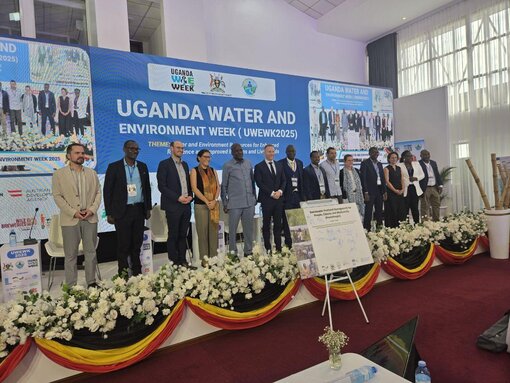The project was officially launched on March 20, 2025, during the 8th Uganda Water and Environment Week in Kampala. Its goal is to support local stakeholders in both countries in managing peatlands sustainably. By preserving these sensitive ecosystems, the project not only protects vital habitats for biodiversity but also advances climate action and improves the livelihoods of local communities.
A Third of the World’s Soil Carbon Is Stored in Peatlands
At the launch event, Jan Peters, Executive Director of the Michael Succow Foundation, emphasized the crucial role of peatlands in global climate protection.
“Although peatlands cover only about four percent of the Earth’s land surface, they store one-third of the world’s soil carbon. Conserving these ecosystems also helps improve water quality, regulate water cycles, and secure the livelihoods of many local communities.”
Building on established partnerships
Peat4People builds on the successful outcomes of the previous project “Policy Dialogue and Knowledge Management on Climate Protection Strategies” (DIAPOL-CE), which the MSF implemented in cooperation with GIZ under the International Climate Initiative (IKI). This earlier project strengthened political dialogue and technical expertise on sustainable peatland management in the Kagera region.
In addition to developing policy tools, Peat4People also promotes practical solutions, including the introduction of sustainable forms of paludiculture, the development of long-term financing models, and the strengthening of regional and international cooperation in peatland protection.
Find out more on the official project page:
Peat4People at the Global Peatlands Initiative
![[Translate to EN:] Banner Stiftung](/fileadmin/_processed_/b/c/csm_banner-stiftung_fee6c1c492.jpg)
